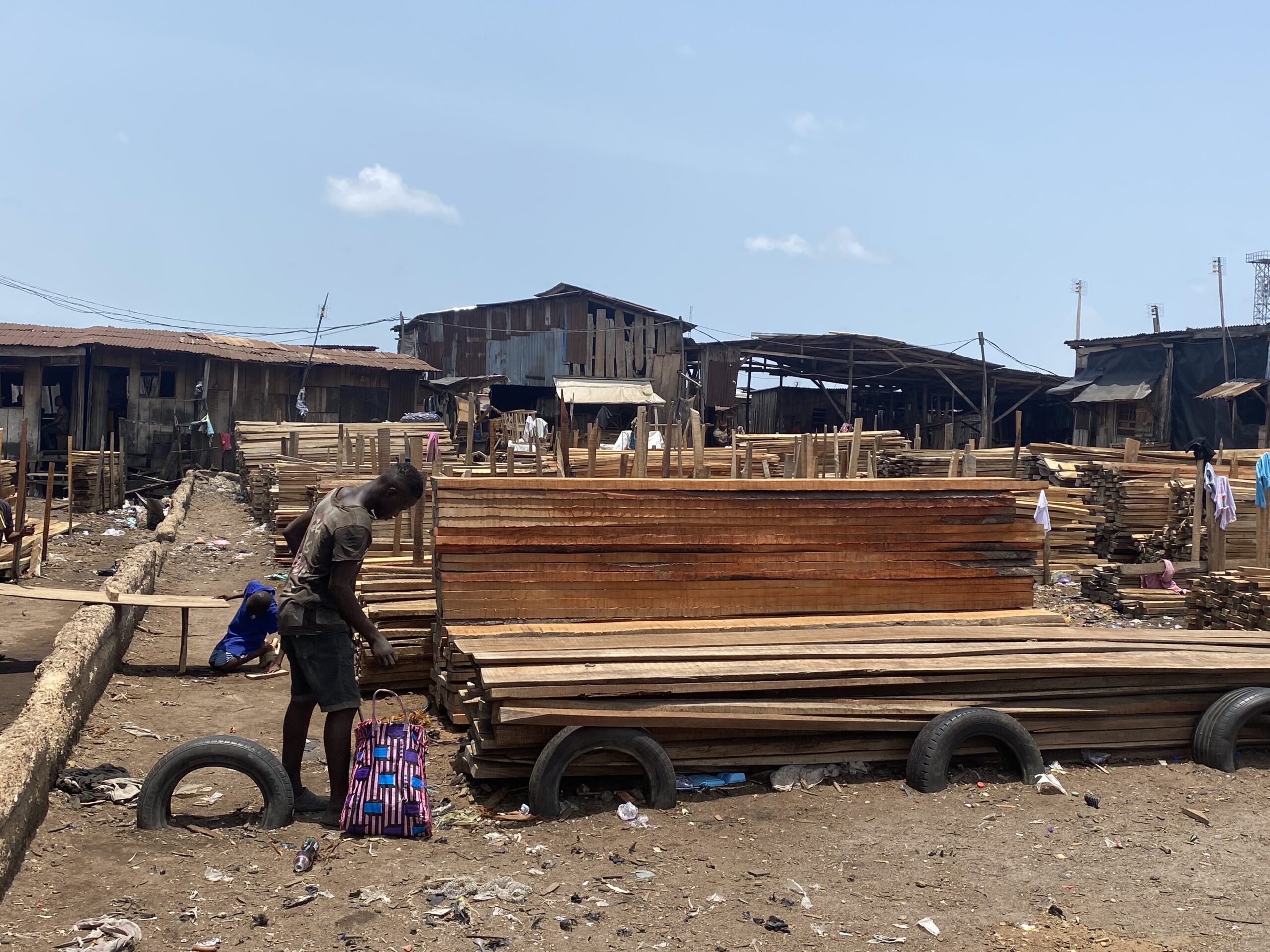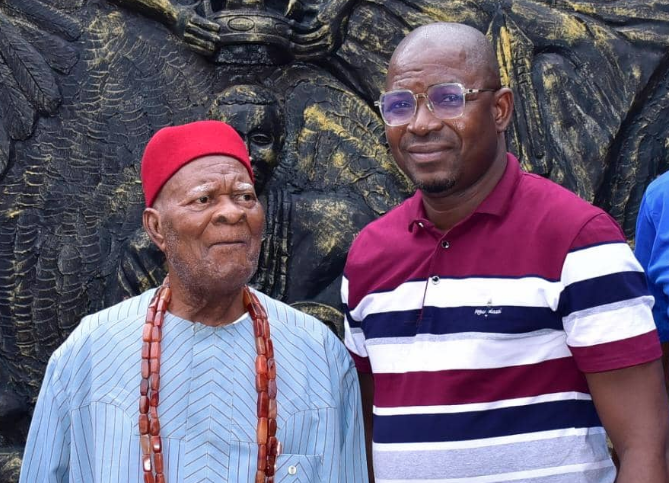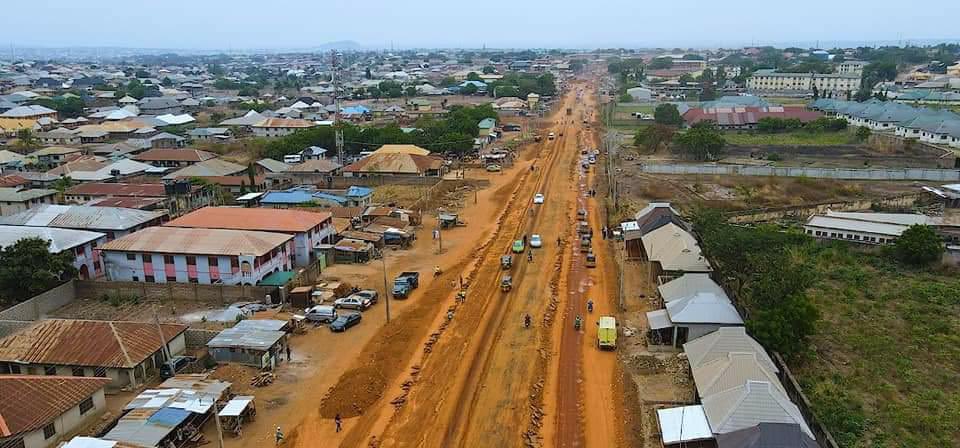Site of The Apostolic School is now a mechanic and carpentry workshop
The other day, I was invited alongside some other economists, to a parley with the statistician-general (SG), to help critique their new methodology for labour-related statistics for Nigeria. The SG noted that this new framework was informed by the best practices of the International Labour Organization (ILO). He informed the audience that in the past, they had considered anyone who worked less than 40 hours a week and was willing to take on more work as unemployed. This led to several tens of millions being reported as unemployed in Nigeria, even as sheer hours of work became less relevant and the emphasis shifted to productivity, aided by technology.
Later, they reduced that number according to international best practices, to 20 hours a week, with similar results. Nigeria’s unemployment figures were always alarmingly high. And of course, that fits into the narrative that most Nigerians would desire. Whereas many Nigerians are suffering, it looks like we love to over-exaggerate our predicament at every turn – and this itself is a major problem because except people feel positive about their country, they may not evolve to a better place. The ‘doom and gloom’ scenario to which we have become addicted needs to be ditched at some point. Nigerians must have to be convinced away from the idea that the country will only get worse. That is not a winning attitude.
It must be said that our expectations in this country especially – more than even any other black African nation I know and/or have been to – diverge a lot from the expectations of say the Western societies whom we try to benchmark with our economy. Nigerians are generally very aspirational. But unfortunately, our actions are usually about self-aggrandisation and not the collective. This is what plays out in our politics and why some politicians see nothing wrong in appropriating what belongs to the commonwealth. But down the rank and file, it is basically a case of me, me, me! Many Nigerians have this migrated abroad, only to find that beyond the façade, many citizens of those countries are passing through sheer hell as well, only saved by the products of centuries of collective thinking and provisions! But here, we talk about our glorious past. We have so many princes of different royal ancestries, many of whom carry on like they should be served. Our religiousness emphasizes how we should get favours from God and how we should be the richest in our society. Some sects emphasise getting so much money and riches for little work, or for nothing.
All these nuances need to be figured out in our quest for collective socioeconomic development – whenever it starts in earnest. I’m afraid that successive governments often focus on the hard numbers but often totally ignore the softer side of things – without which they labour in vain until the tide turns against them. I am advising the current administration not to make the same mistake. There have to be immediate plans to engage the public on some of the issues I mentioned above, as most Nigerians may miss that point when the country actually begins to make progress – with the suffusing pall of negativity that chokes the land and those who dwell therein.
Advertisement
I read quite a few commentaries that are dismissive of the new methodology which dropped Nigeria’s unemployment rate to 4.1%. But I think we should understand that there are merits and demerits. And the methodology forces us all to think about critical issues in the labour space today.
Firstly, the ILO is the United Nations body supervising labour issues worldwide, so at some point, we must adhere to their improving standards. The NBS further says many countries have internalised these new guidelines. However, the NBS is basing its survey on 35,520 households. It is unclear whether the NBS has been using the same database for a while or if it shifts its surveys spatially and geographically to get new perspectives. Also, the NBS has to explain to the public why it chose to survey only 35,520 households. Is that number representative enough for 200 million+ people – depending on whom you believe? I have personally not been surveyed by the NBS and honestly don’t know anyone who has. Again, this throws up the usual cynicism, among ordinary Nigerians – just as happened when we heard that the Buhari government (working with the World Bank) came up with a list of 60 million Nigerians who live in poverty. Don’t blame us if we disbelieve, work on your methodology.
Now, the NBS says that three-quarters, or 73.6% – 76.7% of working-age Nigerians were employed because they did more than 1 hour of paid work (or for-profit) in a week. People are asking if one hour of work in Nigeria is good enough even if someone chooses not to do more work. The amount earned by people who work for one hour a week will differ considerably, with techies earning a lot but casual workers being unable to survive on their earnings. A high-flying executive in many industries does not need more than one hour of work in a week, but an artisan who says one hour of work in a week is enough surely needs help.
Advertisement
The NBS report also says that 36.4% and 33.2% of working-age Nigerians worked for less than 40 hours in the period under survey (Q4 2022 and Q1 2023) but did not seek more work. “Underemployment rate (which is a share of employed people working less than 40 hours per week and declaring themselves willing and available to work more) was 13.7% in Q4 2022 and 12.2% in Q1 2023,” the NBS declared. The bureau further stated that wage employment accounted for only 13.4% and 11.8% in Q4 2022 and Q1 2023 respectively while a whopping 73.1% in Q4 2022 and 75.4% in Q1 2023 were operating their own businesses or into farming!
The balance of 10.7% in Q4 2022 and 10.6% in Q1 2023 were either “engaged helping in a household business” or serving as apprentices/interns (2.6% in Q4 2022 and 2.2% in Q1 2023). This means that of all the people ‘working’ in Nigeria, roughly 85% were engaged ‘on their own’, hustling, serving as apprentices, doing ‘buying and selling’, or generally in the informal sector. This is shameful, sad, and scary. This leaves a balance of 5.3% in Q4 2022 and 4.1% in Q1 2023 that could be considered as truly unemployed, according to the NBS. But obviously, Nigeria is in deep trouble.
The NBS concluded that “22.3% of the working-age population were out of labour force in Q4 2022, while it was 20.1% in Q1, 2023”. This may mean that this category is not looking for employment. Why? Could they all be infirm? Or for some reason zoned out and unwilling to work? I think this is where the real work is. We should have a much smaller percentage of young or working-age people who are unwilling to work in a country with so many problems and pining for labour.
Again, providing for the shortcomings of a small sample size, this survey by the NBS tells a story.
Advertisement
- The face of work has changed the world over. Young people these days no longer think of work as some 8am to 4pm or 9am to 5pm place to go. And oftentimes, the old format is inefficient.
- Perhaps many young Nigerians are simply no longer interested in work. Why? They are now exposed to the ‘developed’ world and all the glitz via the internet and the plethora of social media handles. Leaders too have not done much work in psychoanalysing the youths of today in designing policies. Nigerian youths can no longer be bothered to do the heavy lifting of building a nation from scratch. Many have stopped trying and are just waiting to ‘japa’ through any means. Many are also deluded about what it takes to become successful in life and many think ‘abroad’ is a place of enjoyment. Many would also rather be pranksters, bloggers or Big Brother ‘soft porn’ stars – anything for a big haul of money. Even the children of the rich, sponsored to very expensive schools home and abroad would rather be musicians or Deejays (who work at night or never have to work at all since their work is also their play).
- A recent report in the Punch newspaper detailed how there is a drastic drop in apprenticeships and skills learning in Nigeria. This is a scary prospect because the skills we are talking about play a very critical role in society – carpenters, mechanics, tailors, welders, technicians, electricians, plumbers etc. Most of the workers (bosses) interviewed say they no longer have young people coming in as apprentices. Most say that less than 2% of those who come bother to learn the work before leaving. For most boys from poorer homes in the south of Nigeria, the allure of yahoo-yahoo is way too strong. For the rich or middle-class ones, learning such skills does not even come up as everyone desires a degree. Even the world-famous Igbo apprenticeship system is waning out. Fewer and fewer boys remain in the villages to be picked up by big men for training. Most are already hardened and searching for big bucks in their teenage years. And for those who bother to sound savvy in and out of government, the focus is on technology. Can we focus on technology and abandon these core skills? Who will repair our cars and plumbing in the future? Are we deluding ourselves that we can leap over into the tech future without taking care of these ‘dirty jobs’? The future is bleak in this regard. We are rudderless and rootless.
- Roughly 85% of the Nigerian economy is informal – full of hustlers. Yet Nigeria is pushing more of her youths into ‘entrepreneurship’. Our understanding of ‘entrepreneurship’ here is shallow and used as an excuse for successive governments to shirk their responsibility of organising society, creating adequate public sector jobs to ensure proper manning of public amenities. We cite the example of small-scale industries in China being the fulcrum of their economy but deliberately ignore that small-scale industries in China, Germany, the USA and elsewhere are capacitated to produce tangible things and engage in massive exports. Most of our biggest businessmen/entrepreneurs (who are mere agents of the industries in these countries), only go as far as dealing with small-scale players out there. We should not deceive ourselves.
- If the NBS intends to use this one-hour-per-week benchmark, it should remember that we are comparing apples with oranges at some level. A majority of Nigeria’s workforce is stuck at subsistence level – as maibolas, chewing gum sellers inside traffic and so on, until they get tired and become a liability to the country. Whereas the NBS report has presented the data from a global angle, the same data needs to be discombobulated to allow for Nigerian nuances. A youth working in MacDonalds in the US for example has many opportunities to grow even in the same sector and to live a fulfilled life. I am speaking here about the fundamental and foundational damage to our social system which renders most of our youths illiterate, unemployable, despondent and unable to scale their usefulness to society beyond that petty hustle they do. So, as I advised the SG in that parley, perhaps we don’t want to use 1-hour as a benchmark. Perhaps we want to make that like 10 hours a week (two hours a day), in determining who is fully employed. Or we want to evolve more granular data that separates top earners as fully employed, but those earning meagre amounts with no prospects for bettering themselves, as unemployed.
It is indeed unfair to consider everyone working for one hour as fully employed. Also, we need to look into the kind of survey questions that make such a large number of people say they don’t need more work!
I expect a lot more acerbic reactions in the next few days. At least this strikes up a good debate that allows us to dissect our many problems with our population, productivity, youth engagement, job creation, government responsibility, private sector contributions, artificial intelligence, technology in general, our several experimentations with petty entrepreneurship, and what the future holds for our dear nation. These are crucial times indeed.
Views expressed by contributors are strictly personal and not of TheCable.







